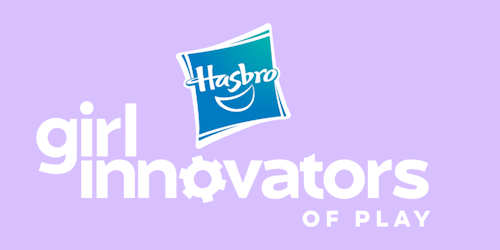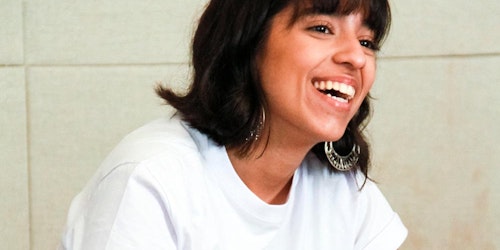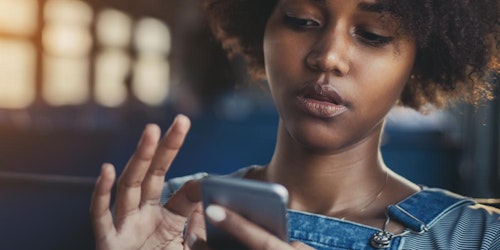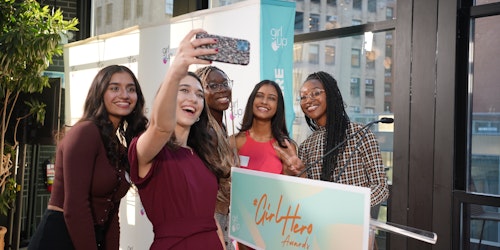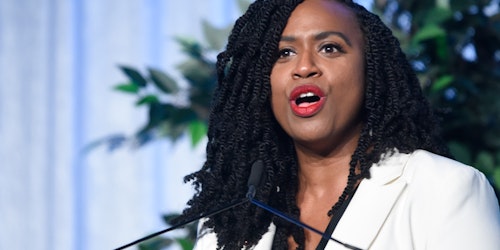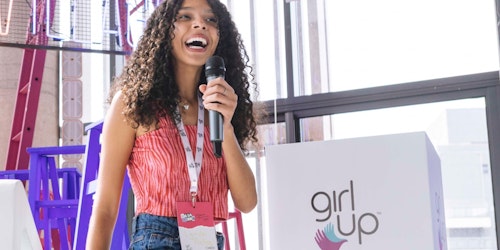This blog is part of our Girl Talks virtual content series. Check out the associated virtual panel on gender equality here!
Three years ago, I joined the Girl Up staff team. Full of passion to make the world a more equitable place for all, I wanted to create spaces for women and girls to shine and lead. What was the spark that created this fire within for gender equality? As far as I can recall, it began when I first experienced gender inequity on a school soccer field, nearly two decades prior.
Gender Equality. Two words, when put together, convey volumes about the world we live in. A phrase that is both a call to action and a living wound. Spoken aloud, they convey a promise for a better tomorrow, yet simultaneously acknowledge that our current global systems are broken and biased.
- Equality, as in, the state of having the same opportunities, rights, protections, and recognition of value by others, both in personal relationships and enshrined in the de facto and de jure law.
- Gender, as in, the expectations or limitations upheld by our society, family, religion, the media, etc. that we inherit based on other’s perceptions of our physical or biological traits.
For me, I learned about gender inequality when I was 10 years old. In fourth grade, each day, my elementary school teacher set her students free to play outside for the daily recess period. There were swing sets, monkey bars, and a big open soccer field for us to choose from. For me, having the chance to get outside, run around, and move my body while playing soccer was the perfect fit.
Typically, the group of students who wanted to play soccer would crowd around whoever had been first to run outside holding the class soccer ball. From there, people would nominate two team captains. Each team captain would select their team members by calling their names, one by one, until the team was full. Then, we would play.
It was a nerve-wracking time for whoever wasn’t nominated as captain, to wait and see, if your name would be called. Having your name called conveyed you were be deemed valuable to the two captains and had made the cut for the ten open spots. If you were called first, it was a recognition of your skills. If you were called last, there was a chance you might not ever be passed the ball. If you weren’t called at all, then you didn’t get to play.
Each day, I lived through the same process of social selection. What stood out to me, as a 10-year-old who was previously oblivious to gender segregation at school, was the fact that girls were never nominated as team captains and nearly always called last. Yet, when girls did get to play, it was clear that we had equal skills and equal potential!
Maybe this explained why most of the girls in my class didn’t even make themselves vulnerable to the process in the first place. Instead, they chose to sit on the sidewalk and watch, claiming they didn’t want to play. Why put themselves out there in a world that clearly didn’t value them? Why even try? In those moments, I could actively see gender inequality through a 10-year-old lens. Boys were perceived and reinforced as leaders and athletic because they were provided opportunities to grow those skills. Yet, girls were unfairly perceived as inadequate athletes by nature of a gender biased society.
Although other girls seemed to accept this male favored social selection process by relegating themselves to the benches, to me it was an itch that I had to scratch. One day, I came home agitated and typed out a petition calling on our teacher for help. I wanted her support to ensure that at least one soccer captain would be a girl and that teams would be gender balanced. I asked every girl in our class to sign it, and many did. The next day, I presented it to the teacher. I can’t remember what happened next, but I do remember feeling powerful and motivated by our collective power to speak up and make a difference. For the first time in my life that I can remember, I saw gender-based inequality occurring, and it stuck with me.
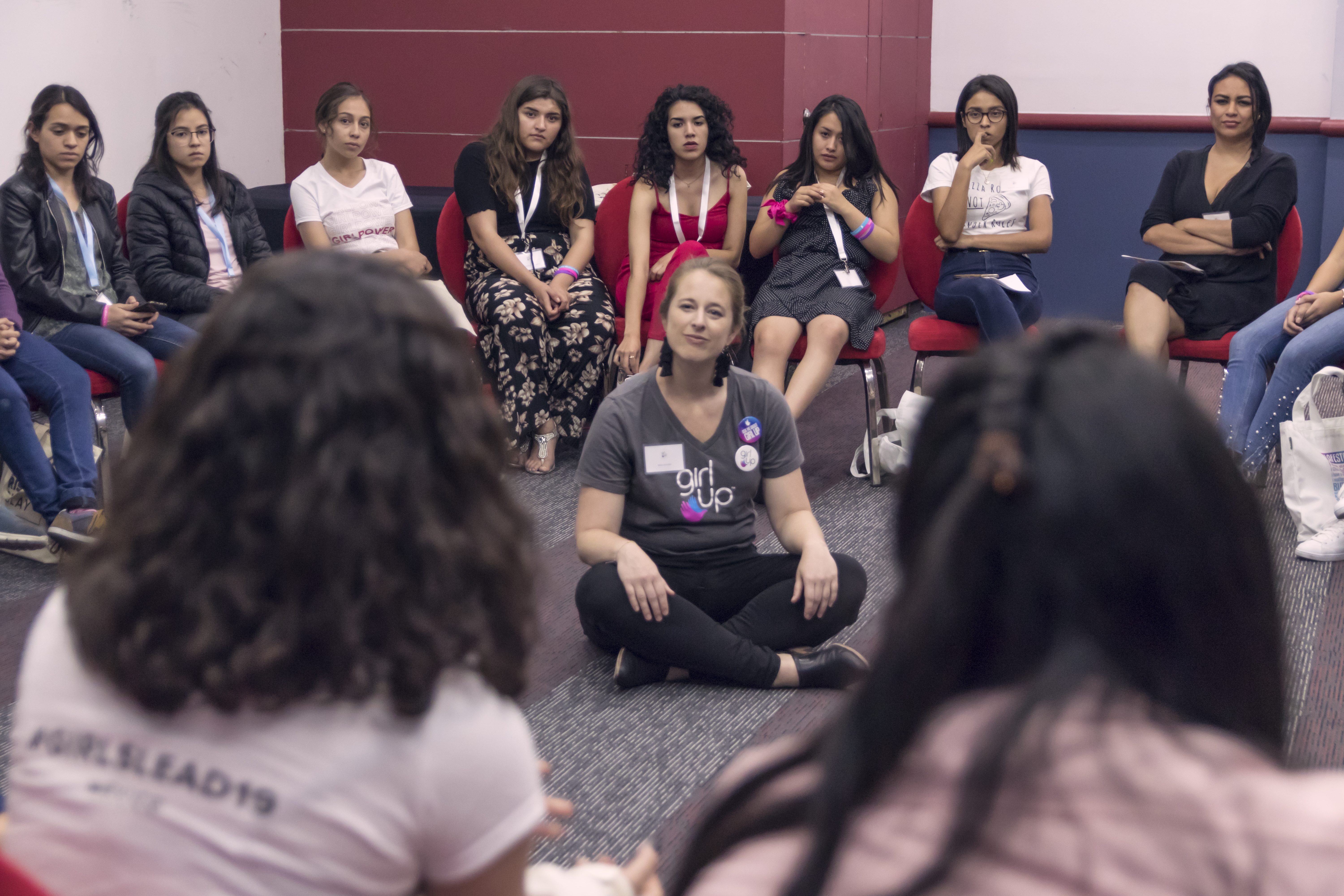
Since then, my work to move the needle on gender equality has taken me to nearly 50 countries and over half of the U.S. states and territories. I’ve met with teenage girls and women in nearly all continents around the world – North, Central, and South America, Africa, Europe, and Asia. We’ve spoken about our lives, our hopes for the future, and our setbacks. We’ve connected on our goals to not only advance our own opportunities, but those for our families and for the generations of girls who will come after us.
And guess what? Our experiences of gender inequality are not the exception, they are the norm.
I cannot speak the experiences of all women. As an intersectional feminist, it is deeply important to me to acknowledge that every woman and girl faces a unique set challenges and discrimination, based not only on her gender but also on her intersecting identities and backgrounds, such as race, ethnicity, sexuality, physical ability, religion, socio-economic status, size, motherhood status, country of origin, and whether we are trans or cisgender, to name a few.
That being said, every single woman and girl I have met has shared at least one story that highlights the patriarchy we live in, where men and boys are prioritized, and women and girls are devalued. The patriarchy is comparable to pollution in the air – we all breathe it in. It crosses borders indiscriminately and will continue to do so unless we choose a new path forward. Like pollution, it’s poisonous to all of us, not only females. While simultaneously benefiting from the privilege it affords them, there are aspects of patriarchy that hurt men and boys, too.
The connections I have built with other women and girls around the world have shown me that too many of us carry an underlying current of hurt or anger within, gained while living in a world governed by universal systems of gender-based oppression, white supremacy, and capitalism. Yet, there is also an underlying current of hope for a better world and a growing acknowledgement of our collective power.
Making face to face connections with girls at Girl Up, especially through my time spent in Malawi, the Republic of Georgia, Namibia, Estonia, and Kosovo during Girl Up’s Women in Science (“WiSci”) Girls STEAM Camps most poignantly demonstrates that to me that today’s girls are up for the task and already organizing and advocating for gender equality. Just ask the 3,500+ Girl Up Club leaders and members in all 50 U.S. states and 120 countries around the world working hard every single day to change the narrative.
Just like my 10-year-old self, these girls and women are activating to achieve gender equality in their own way. Even though we face a different set of specific challenges on our path, we can connect through our collective power, knowing that we are “in it together” to help ourselves and other women around the world. These experiences have given me hope for the future of humanity. It’s an incredible rush and a phenomenal privilege to work on gender equality as a career at Girl Up, one for which I am forever thankful.
Interested in leveling the playing field in sports? Check out Sports For A Purpose!

